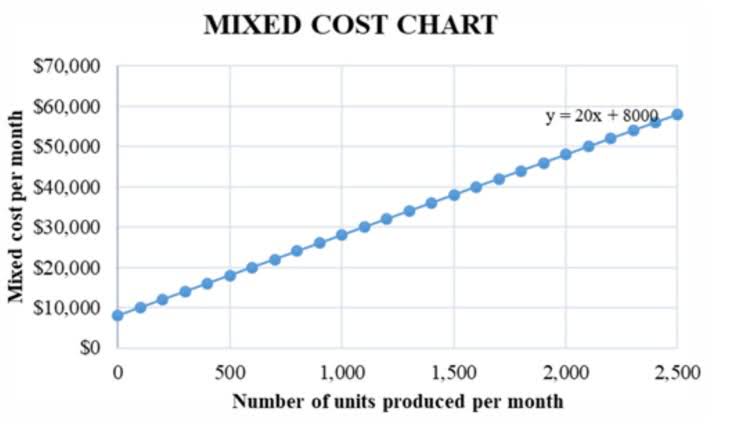
Since February 2020, there has petty cash been a dramatic shift in the operating environment of financial markets as a result of the increased volatility caused by the COVID-19 pandemic. While insurance companies have been facing abounding uncertainty, regulators have been continuing to focus on improving the transparency of insurance companies’ operations to help stakeholders make informed investment choices. If you find the thought of preparing your business’s taxes on your own overwhelming, consider working with a professional tax preparer to ensure everything goes smoothly. At FinancePal, we have tax experts on staff who can help with your small business tax preparation and ensure that your insurance agency’s income taxes are filed on time and paid correctly. Upholding these best practices on top of running your own insurance agency might seem impossible—after all, there are only so many hours in a day.
How Is Insurance Accounting Different from General Accounting?
- Combining this with IBNR reveals the total cost of claims in a given accounting period.
- Since this is an estimate, it will eventually be adjusted up or down based on the actual claims that are incurred.
- This post will walk you through everything you need to know about ASC 944, including how HubiFi’s automated solutions can keep your business compliant with ease.
- In other words, the combined ratio formula is (Commissions + Expenses + Claims) / Premiums.
- Their systems integrate seamlessly with popular accounting software, providing real-time analytics and dynamic segmentation to help insurance companies maintain accurate and compliant financial records.
- By understanding these elements—transition guidance through LDTI updates, acquisition cost handling, and revenue recognition principles—you’re well-equipped to navigate ASC 944’s complexities effectively.
- We believe in personalized service which means building strong relationships with our clients.
If you change your mind at any time about wishing to receive the information from us, you can send us an email message using the Contact Us page. The effective date of IFRS 17 is moving closer and insurers are getting ready for implementation. With the effective date just over a year away, insurers are required to refocus their efforts on getting IFRS 17 ready within their organisation.

IFRS18 : The new accounting standard for insurance contracts
Whether your business requires a traditional audit or accounting and reporting advisory services, Deloitte & Touche LLP’s Audit & Assurance practice works to deliver more than a static snapshot of the past. ST Accountancy are accountants based in Suffolk and Essex specialising in accounting services and tax advice for SME’s. Accountants can assist this process by contributing insights through their skills in forecasting and analysis, thereby enabling insurers to plan for the future more effectively. This webcast is suitable for all members of IFRS 17 teams, as well as other stakeholders in the business that want to get a better understanding of progress across insurance accounting the global insurance community.
- Additionally, proper and compliant accounting enhances the proper decision-making for the companies to optimize their pricing models, managing cash flow and investing wisely.
- If a policy is canceled before it expires, part of the original premium payment must be returned to the policyholder.
- By analyzing financial records and uncovering discrepancies, forensic accountants protect insurers from fraudulent payouts and help policyholders receive rightful compensation.
- If you are interested in getting more on insurance company accounting solutions, you should get advice from the specialists that deal with this particular field.
- In today’s fast-paced business environment, having access to real-time data is crucial.
- By taking into account all of the factors that could affect their own financial performance, insurance companies are able to provide customers with competitive, but realistic rates, as well as quality coverage.
How Forensic Accountants Assist in Insurance Claims

This means that insurance accounting is a process that takes into consideration factors like market trends, potential liabilities, and other elements that impact the financial performance of insurers. ASC 944, or Accounting Standards Codification Topic 944, is a set of accounting guidelines specifically crafted for the insurance industry. It ensures that insurance entities adhere to consistent and transparent financial reporting practices. This is crucial for maintaining trust with stakeholders and complying with regulatory requirements.
Schedule a Demo with HubiFi
- This is crucial for maintaining trust with stakeholders and complying with regulatory requirements.
- With these insurance accounting basics in your pocket, you’re better prepared to take on the financial responsibilities of running your insurance agency and upholding your duty to your policyholders.
- Some unrealized gains or losses are recognized in other comprehensive income instead.
- By doing all of this, accountants can help ensure that insurance companies remain profitable while still adhering to all pertinent laws and regulations.
- Life insurance companies, whose liabilities are longer term commitments, have a greater portion of their investments in residential and commercial mortgages.
- Following the IASB’s vote to defer the start date for IFRS 17 until 1 January 2022, we have been speaking with clients across the globe about how this might affect their implementation plans.
This integration ensures that your accounting practices are not only compliant but also accurate and up-to-date. By understanding these elements—transition guidance through LDTI updates, acquisition cost handling, and revenue recognition principles—you’re well-equipped to navigate ASC 944’s complexities effectively. Plus, solutions like HubiFi’s automated systems can further streamline compliance efforts while enhancing data accuracy across your operations. Navigating the intricacies of ASC 944 can be a daunting task, but recent updates aim to make this journey a bit clearer. The Long-Duration Targeted Improvements (LDTI) introduced by the Financial Accounting Standards Board (FASB) are designed to enhance transparency and consistency in financial reporting for insurance contracts.

IFRS 17 is coming

For more information and contact details of your local territory experts please contact Stuart Low, Global IFRS 17 Business Driver, PwC UK. All insurance companies reporting under IFRS (International Financial Reporting Standard) will be impacted by the new reporting standard when it becomes effective in January 2023. IFRS 17 will result in significant changes to the way that financial information is presented, and adoption will require significant planning. Compliance with ASC 944 isn’t just a regulatory requirement—it’s a strategic advantage for insurance companies aiming to maintain financial integrity and trust. Learn how HubiFi’s solutions ensure compliance and streamline your financial processes.
DeloitteAcct
- Those recoverables deemed uncollectible are reported as a surplus penalty on the liability side of the balance sheet, thus reducing surplus.
- Forensic accounting in insurance goes beyond numbers—it’s a powerful tool for uncovering the true story behind financial claims.
- With dynamic segmentation capabilities, you can analyze various aspects of your business performance and make informed decisions quickly.
- We also offer business financial advice in Suffolk to businesses who are looking to grow and need further support, whether you’re in the insurance industry or another, we can help.
Because of this, insurance companies must estimate likely claims and record this as an expense on the income statement. Since this is an estimate, it will eventually be adjusted up or down based on the actual claims that are incurred. The second largest asset category for property/casualty companies, preferred and common stocks, is valued at market price. Life insurance companies generally hold a small percentage of their assets in preferred or common stock. However, when prevailing interest rates are higher than bonds’ coupon rates, amortized cost overstates asset value, producing a higher value than one based on the market. This publication contains general information only and Deloitte is not, by means of this publication, rendering accounting, bookkeeping and payroll services business, financial, investment, legal, tax, or other professional advice or services.



